Do you know Pamukkale? Incredible natural beauty in Turkey
Views that blow us away - that's what we want on vacation, is not it? Maybe you're thinking about the view from the Empire State Building or the French Alps. But today I would like to introduce you to a place that blew me away: the city of Pamukkale!
Located to the west, along the Aegean coast, where, in addition to beautiful beaches, hidden coves and interesting cities, there are many ancient treasures to admire, Pamukkale is by far the most important treasure in the world. Translated, Pamukkale means "cotton castle". When you see this place, you'll soon realize that Pamukkale has truly earned that name.
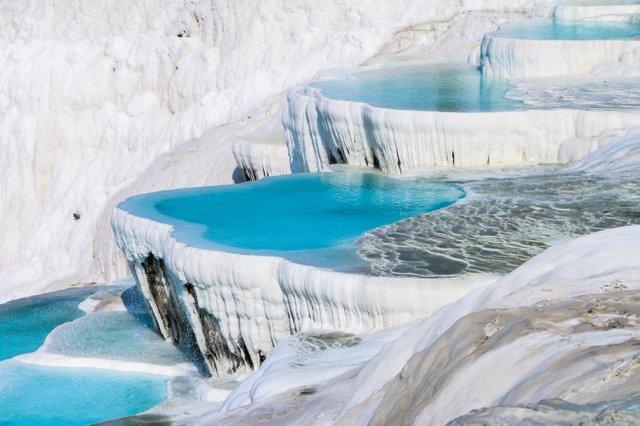
Pamukkale is located in southwestern Turkey, near the city of Denizli. Especially two things are absolutely worth seeing: First, there are the famous limestone terraces and on the other, the ancient and historic city of Hierapolis.
The limestone sinter terraces of Pamukkale
They are bright white and shine - the limestone terraces in Pamukkale. Long since declared a World Heritage Site by UNESCO, these snow-white terraces impress with a breathtaking view. The terraces were created by the evaporation of hot, calcareous thermal water from the springs, from which, by the way, 250 liters of carbonated and calcium-rich thermal water are still flowing every day. The deposits look like cotton wool, which is why Pamukkale also got the name "cotton castle".
The water should even have a healing effect, which the ancient Romans recognized almost 2,000 years ago. In the second and third centuries, the resort then had its heyday, because it was still carefree to bathe in the warm thermal water. Thus, the circulatory, rheumatic and cardiac patients came here to bathe in the healing pool and to recover from their sufferings and infirmities.
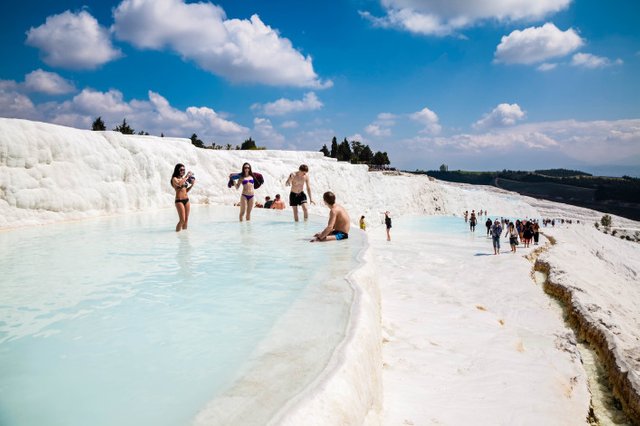
Bathing prohibition for the sake of nature
As beautiful as the snow-white terraces are today, they were unfortunately not always. Due to a rush of curious tourists in bikinis and swimming trunks, they were unfortunately pretty dirty for years and almost lost their beauty.
By the way:
You should definitely pack your bathing suit and bikini! Here specially artificial pools were built, which allow comfortable bathing with stunning views.
For 20 years now it has been forbidden to go swimming in the pools. In addition, you can only enter the terraces barefoot.
Many hotels around Pamukkale were demolished to protect the terraces. After this time, the terraces have regained their beauty and elegance and are still an impressive natural spectacle, attracting many tourists from all over the world every year.
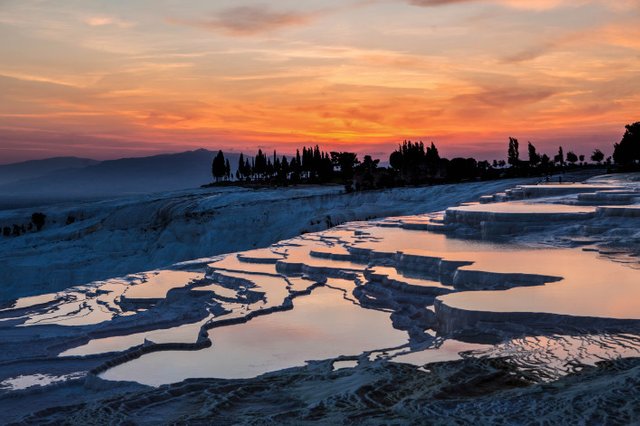
Pamukkale at sunset
During the day, the tourists in Pamukkale and around the terraces bustle, in the evening, however, it is very quiet and you are almost alone. Lara, a reader of the travel magazine, has been lucky enough to have a close look at this fascinating place.
Especially from the terraces in the evening sun, she was enthusiastic: "I love the sunset, he has made the limestone terraces appear in completely different colors again." You can imagine how impressive the sight at sunset must be. Well, I do not know about you, but I am already losing myself in daydreams!
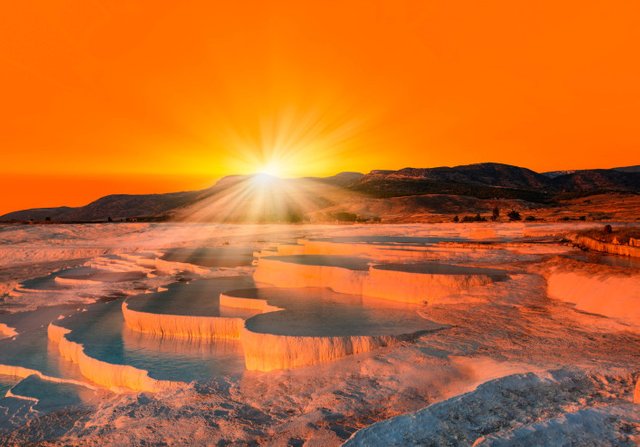
The ancient Hierapolis
Through the limestone terraces, the other sights on the Aegean coast are sometimes forgotten. Lara has the following tip for you: "Sitting in the amphitheater was a really cool thing. And it's funny and impressive at the same time to stand in front of such ancient buildings from antiquity. "
Above the mountain in Pamukkale lies the ancient Greek city of Hierapolis with its amphitheater, the necropolis (tombs), the Temple of Apollo and the city gate.
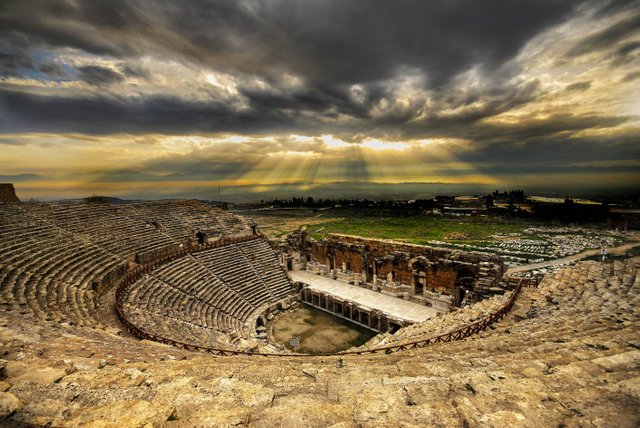
Many buildings in Hierapolis are still very well preserved, especially the amphitheater is one of the best preserved amphitheater in Turkey. The ancient city was founded in 190 BC and before it became part of the Roman province of Asia in 133.
Researchers say that because of its large amphitheater, marble and limestone terraces, Hierapolis must have been a very important city below the mountain. The water of the terraces served not only for bathing, but also for dyeing wool. Handicrafts such as weaving mills and textile trade thus provided the city with great wealth.
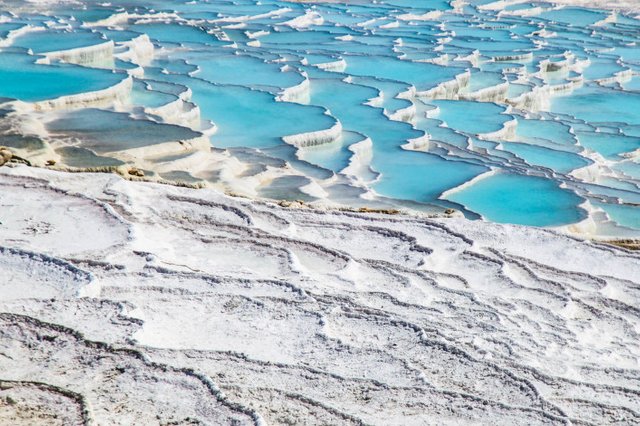
If you look at this place, it is not surprising that many tourists combine their beach holiday in Turkey with a day trip to Pamukkale. Mostly they come from holiday resorts like Antalya, Fethiye, Bodrum and Kusadasi. Near Pamukkale is also Ephesus, another ancient city that was once very important and well preserved.
So, if you are planning a beach vacation in this wonderful country, you should visit both or at least one of these magnificent places, if possible. You should not miss these cultural treasures!
Congratulations @mazzzenko! You have completed some achievement on Steemit and have been rewarded with new badge(s) :
Click on any badge to view your own Board of Honor on SteemitBoard.
To support your work, I also upvoted your post!
For more information about SteemitBoard, click here
If you no longer want to receive notifications, reply to this comment with the word
STOPDo not miss the last announcement from @steemitboard!